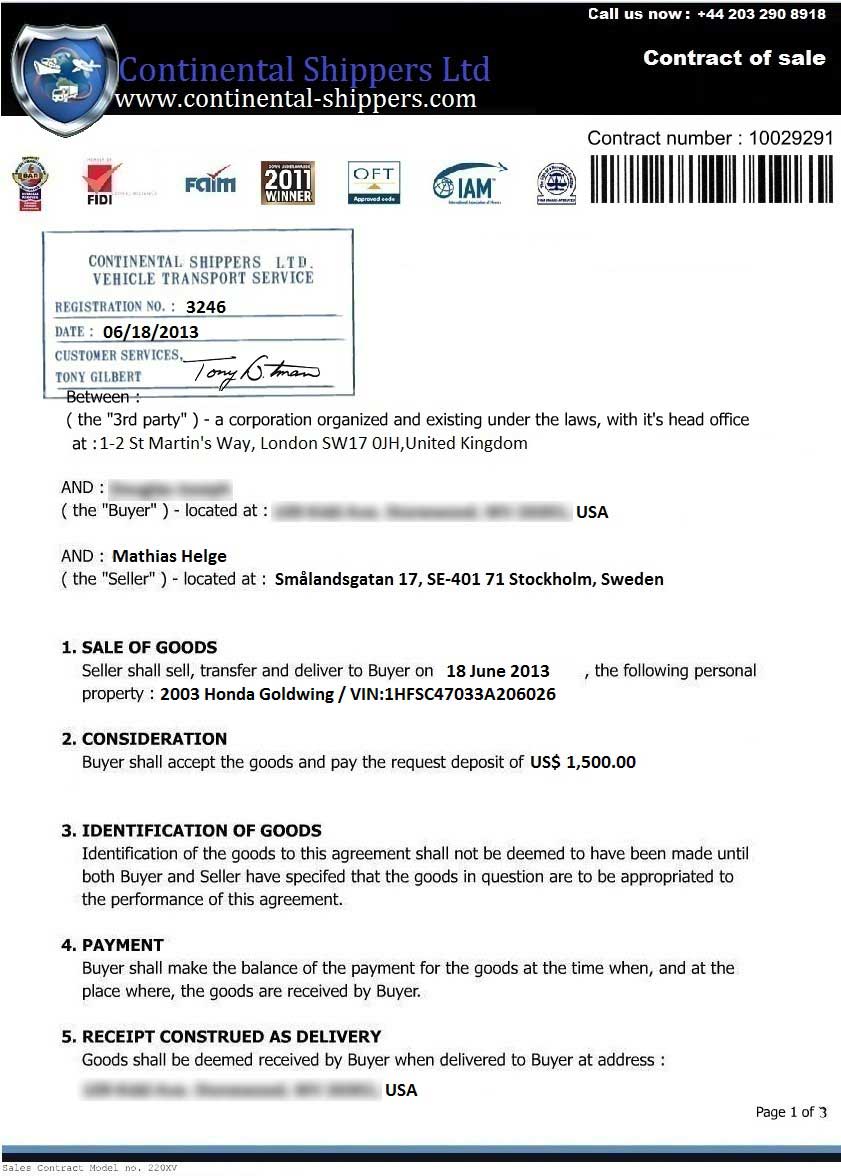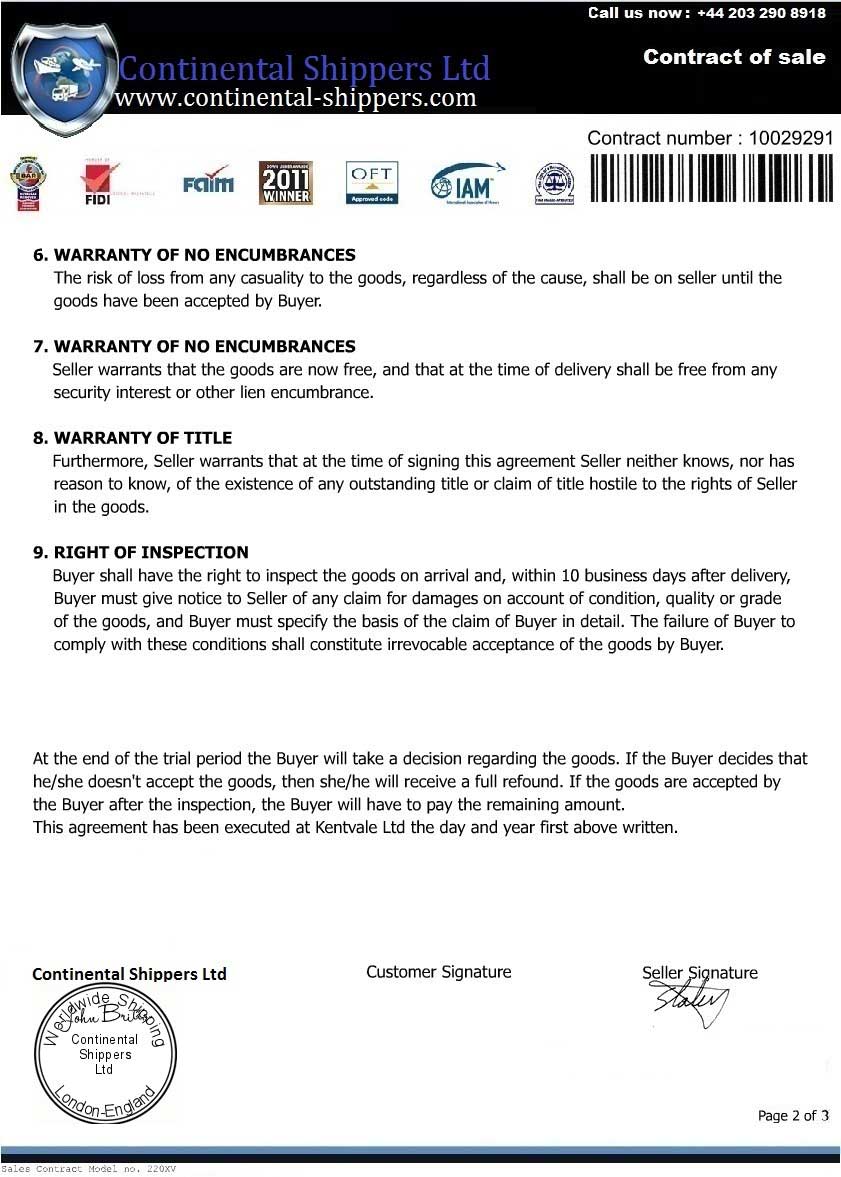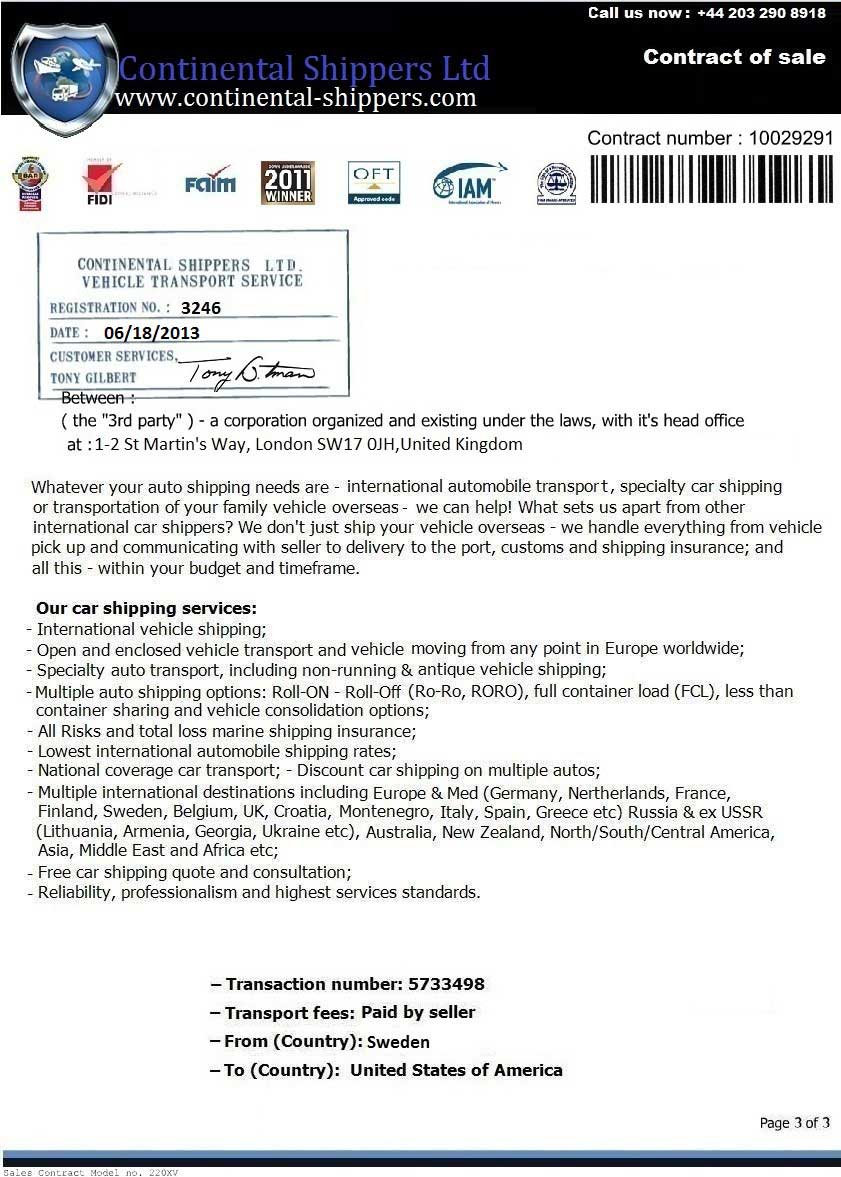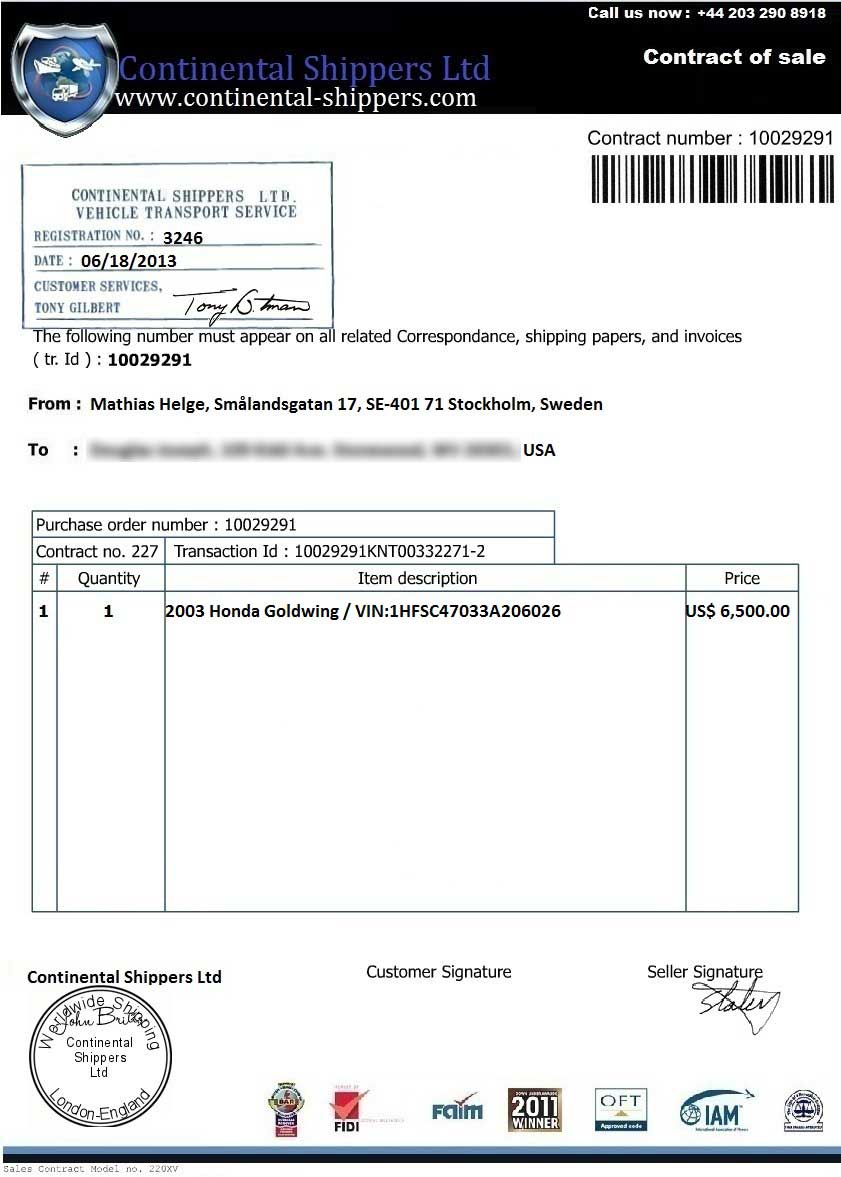It’s pretty sad how hard some people will work to steal from others. If they would just work as hard at an honest living as they do trying to con people, they’d do just fine, and we’d all be better off. One type of con that is rather amazing in its depth of “scamminess” is the “motorcycle seller has shipped the bike to you” scam. It goes something like this:
You’re on the hunt for a new bike. (We hope you’re not planning on going into debt to make the purchase, so lets just say that you’ve saved the money, and it’s about to burn a hole in your pocket. )You’re googling “Harley for sale” or “Honda for sale” or whatever. You just happen to find, on some unheard-of website of bikes for sale, a splendid specimen for an amazingly low price. It could be real. Maybe not. You’re on the alert.
Just in case it is real, you reach out to the seller. Clicking the link may lead to another page on a different site, but eventually you are either permitted to send a message via some website, or you obtain a regular email address and write to them.
They answer. The bike is still for sale. It’s as glorious as the ad listing proclaimed, but there are just some extenuating circumstances. The seller is currently located at XYZ location, while the bike is still at some prior address or some location other than where the seller is at the moment.
You tell them you’re only willing to work through a legit escrow agency. They tell you that’s fine. They offer that they will ship the bike to you, and the money does not have to change hands until you have the bike in yours. There are vague but reasonable-sounding promises that you can make arrangements for payment via an escrow agency, and you will have a certain reasonable window of time (some days) after the bike arrives to either approve or disapprove of the transaction.
At this point, you are thinking you are not in danger, but you are wondering if it is legit. After a few more days of occasional contact, the seller seems content that you are serious. Next thing you know, you’re being notified that they have shipped the bike. “Wait,” you think to yourself, “I thought I was first supposed to make some connection with an escrow agency of my choosing?”
Then you start getting emails (with attachments) from a company that advertises itself as both a bike transport company, and an escrow-type company that facilitates sales. You stand to save thousands of dollars on this gorgeous bike.
There are multiple versions of the scam from this point forward. In one version, “you only need to pay for the shipping charges.” Say again? Yes, several hundreds of dollars in shipping charges. In another version, the documentation may “require” that you pay a “deposit.” In one recent case where this scam was actually attempted (but not successful) the amount of the “required” deposit was “only” $1,500 (on a bike that, if it really existed, would be worth about $10,000-$11,000, and which the seller had advertised for sale for only $6,500).
By the attachments, the con artists are essentially saying, “Look at all these really authentic-looking documents with actual signatures.” (Really?) There are often all sorts of documents—there may be a waybill and/or a bill of lading, tax documents, customs forms, a contract, or whatever. It all just looks so legit. See attachments below from the above-mentioned actual scam effort that did not succeed.
It’s amazing how realistic this “company’s” website will seem. All these documents seem so proper. The original listing may have even been on a trustworthy site. But don’t get comfortable. Warning! Danger! The payment method choices will likely demand either a bank transfer, wire transfer, money order, cashier’s check, or debit card transaction. If you use one of those methods, it will be as though you just handed them cash, and they’re gone. You won’t have any big “PayPal” company or any credit card company willing and able to go to bat for you, chasing down a “merchant” that hopes to continue doing business with them. Your money will be gone.
Consider that by the time you’re to that point, the con artist(s) will have spent several days luring you in (or at least attempting to). Who knows how many hours of labor they have spent in creating that whole fake company website, plus more hours spent in conjuring all the fake documentation. Amazing.
Caveat Emptor is Latin for “Let the buyer beware.” Indeed. As the old timers would often say, “If it seems too good to be true, it probably is.” It’s always to good be careful, and today more so than ever.
Below are “documents” from an actual scam effort that did not succeed:
Doug Joseph
Latest posts by Doug Joseph (see all)
- 2019 National Rally – Promotional Downloads - June 13, 2019
- Big News About ASR Website! - May 30, 2018
- Sword Run (Clarksburg, WV) promos: videos, poster, sponsor form, info - April 14, 2016




